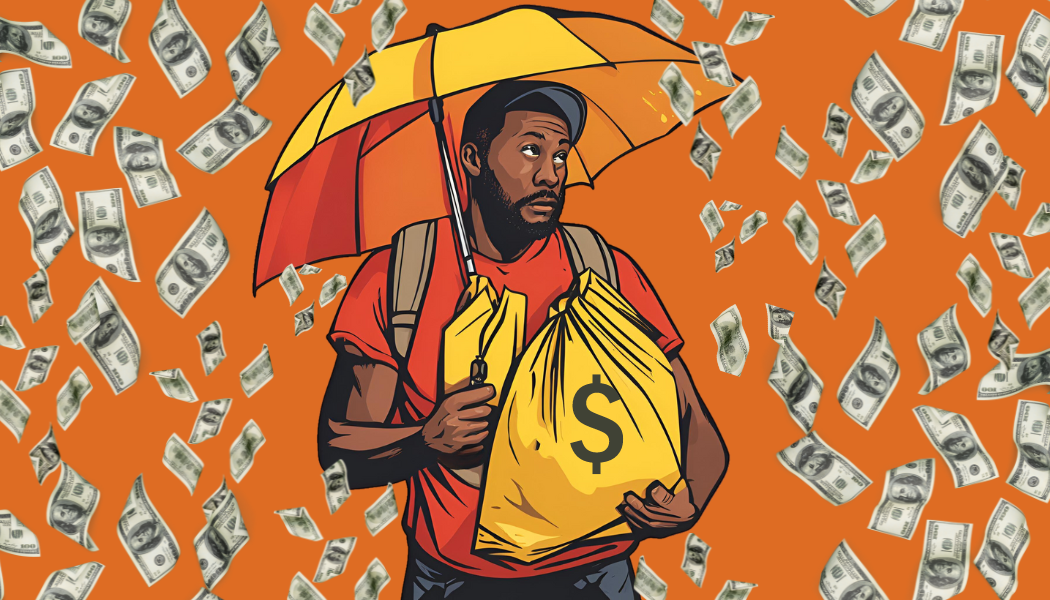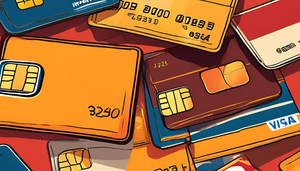
Do these sentences resonate? 👇
- "I'm living paycheck to paycheck and have nothing saved for emergencies."
- "Unexpected expenses always seem to hit me at the worst times."
- "I know I need to save, but I don't know where to start."
I'm with you if any of these sound a little too real. Building an emergency fund might seem overwhelming, but it’s achievable and essential for financial security.
Let's get started.

"Start where you are. Use what you have. Do what you can." – Arthur Ashe
Building an emergency fund is crucial for financial stability. Research shows that 56% of Gen Z doesn’t have enough savings to cover three months of expenses in case of an emergency. This lack of savings can lead to increased stress and anxiety, as well as a higher likelihood of falling into debt when unexpected costs arise.
Why do you need an emergency fund?
Here are some key points:
- Protection from Unplanned Expenses: Car repairs, medical bills, or sudden job loss can disrupt your finances if you’re not prepared.
- Peace of Mind: Knowing you have a financial cushion reduces stress and anxiety.
- Financial Independence: Having savings means you won’t have to rely on credit cards or loans, which can lead to debt.
How much should you save? Experts recommend having three to six months' worth of living expenses saved up. Start small and build your way up. Even saving a small amount regularly can make a big difference over time.
Barriers to Building an Emergency Fund
- Financial Dependence: A significant number of Gen Zers, about 61%, still rely on their parents for financial support, making it challenging to save independently.
- Low Earnings: Entry-level jobs often come with low wages, making it hard to set aside money.
- High Living Costs: The high cost of living and education expenses can eat into potential savings.
Remember, everyone starts somewhere. It's okay to begin with small steps. Each dollar saved is a step toward greater financial freedom and independence.
- If You’re Financially Dependent: Start saving any extra cash you receive, whether from allowances, gifts, or part-time work. Open a separate savings account to keep these funds untouched.
- With Low Earnings: Focus on saving a small percentage of your income, no matter how little it seems. Every bit counts.
- High Living Costs: Look for ways to reduce your expenses, such as cutting back on non-essential purchases or finding more affordable alternatives.

"It’s not your salary that makes you rich, it’s your spending habits." - Charles A. Jaffe
How is YOUr progress with your emergency fund?
Here are some reflection questions to help you understand and improve your productivity habits:
- How do YOU currently manage unexpected expenses?
- How can an emergency fund support YOUr financial goals?
- What small changes can YOU make in your daily spending to start building YOUr savings?
- How do YOUr spending habits affect YOUr ability to save?
- How can YOU adjust YOUr budget to prioritize saving for an emergencies?

"Building wealth is about consistency, discipline, and making your money work for you." - Mellody Hobson
Click on the dropdowns below to see the easy action items:
Do one of these things TODAY 👇
- Track Your Spending: Review your expenses over the last month to understand where your money is going. This helps identify areas where you can cut back.
- Set a Savings Goal: Decide on a realistic amount to save each month. Even $20 a week adds up over time.
- Open a Separate Savings Account: Keep your emergency fund separate from your checking account to avoid the temptation to spend it.
Say one (or all) of these affirmations out loud 👇
- "I am capable of building a secure financial future."
- "Every dollar I save brings me closer to financial peace."
- "I have the power to create a safety net for myself."
- "My financial discipline grows stronger every day."
- "I am committed to my financial well-being and security."
Channel that feeling 👇
Feeling overwhelmed? Start small. Consistency is key, and every little bit helps.
Feeling unsure? Start with our money guide to find more resources to help you understand your personal finance better.
Feeling motivated? Keep going! Celebrate small milestones along the way.
Some vibes to close us out
Remember, your path to financial stability is uniquely yours.
Embrace each milestone, no matter how minor.
Acknowledge your progress and use setbacks as learning opportunities.
You're laying the groundwork for a secure financial future.
YOU got this. 💭✨
Sources
- "An essential guide to building an emergency fund." Consumer Financial Protection Bureau.
- "Gen Z’s unique money mindset and approach to financial wellness." Bankrate (2023).
- "56% of Gen Z doesn’t have an emergency fund—here’s the first thing you should do to build one, according to a CFP." CNBC (2023).

Dig into this topic deeper by signing up for our FREE newsletter.
You'll be able to download the reflection worksheet to put all these actions into one page.
Once you're in, come back to this page and download your new go-to resource.








